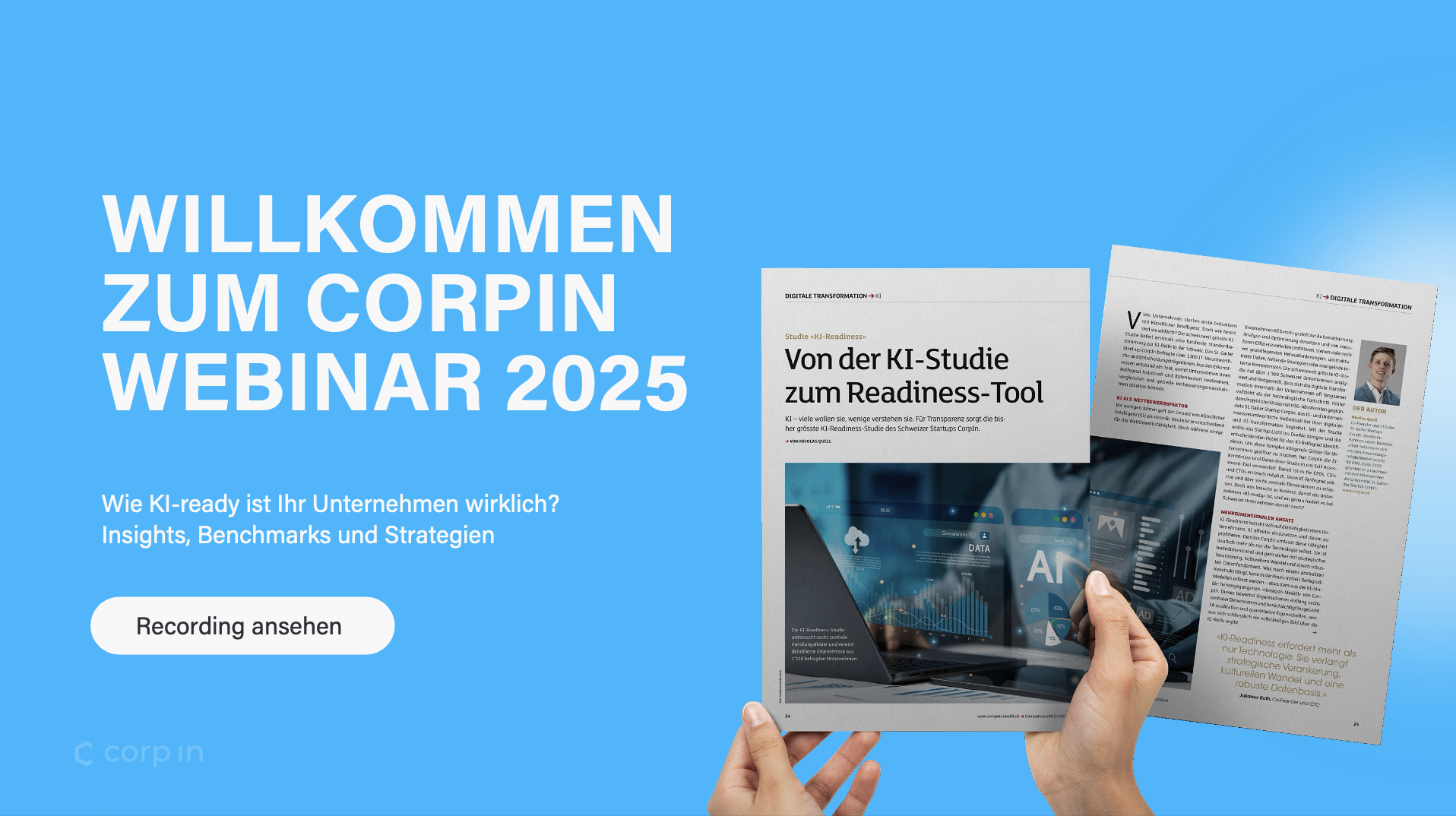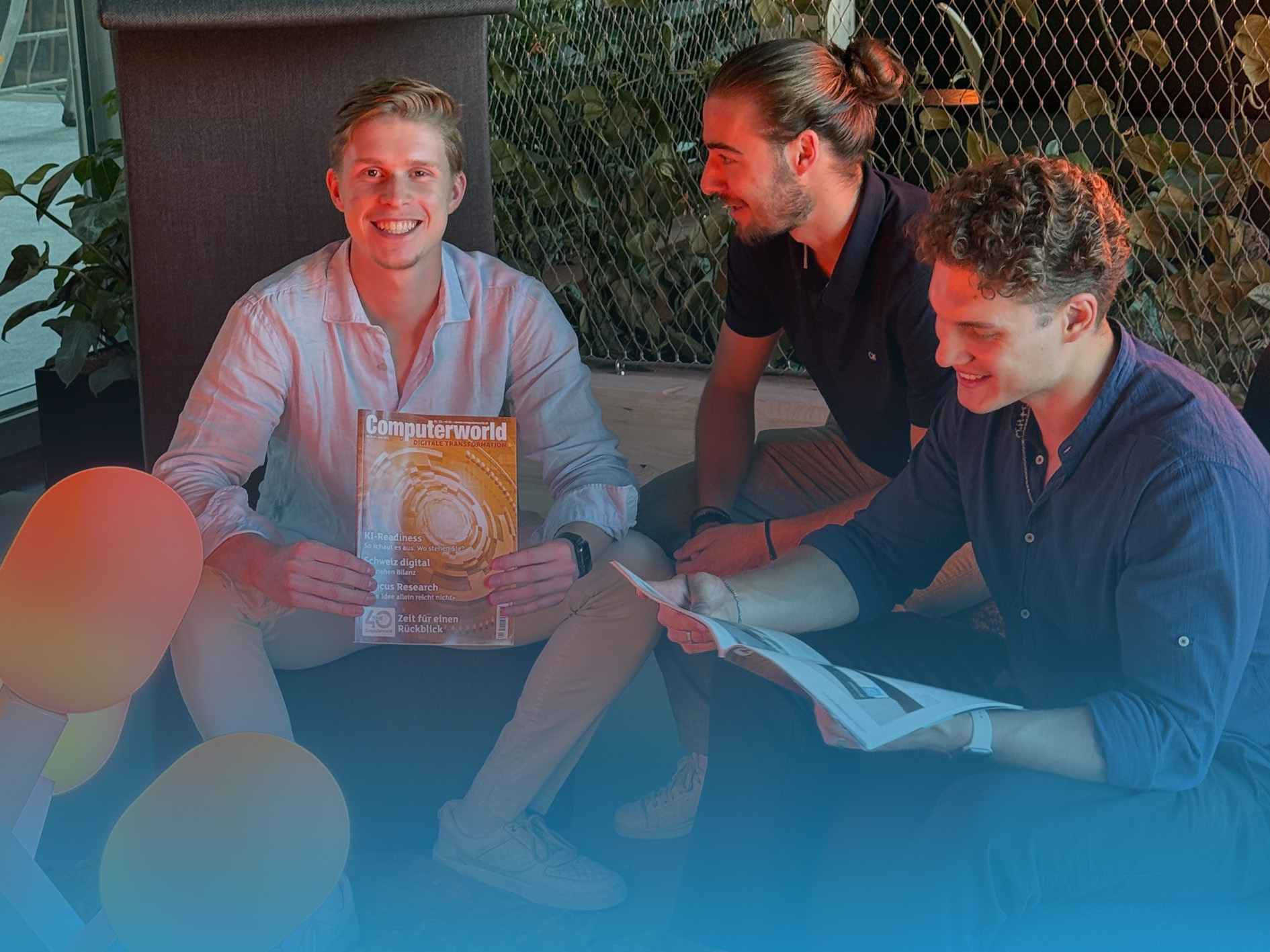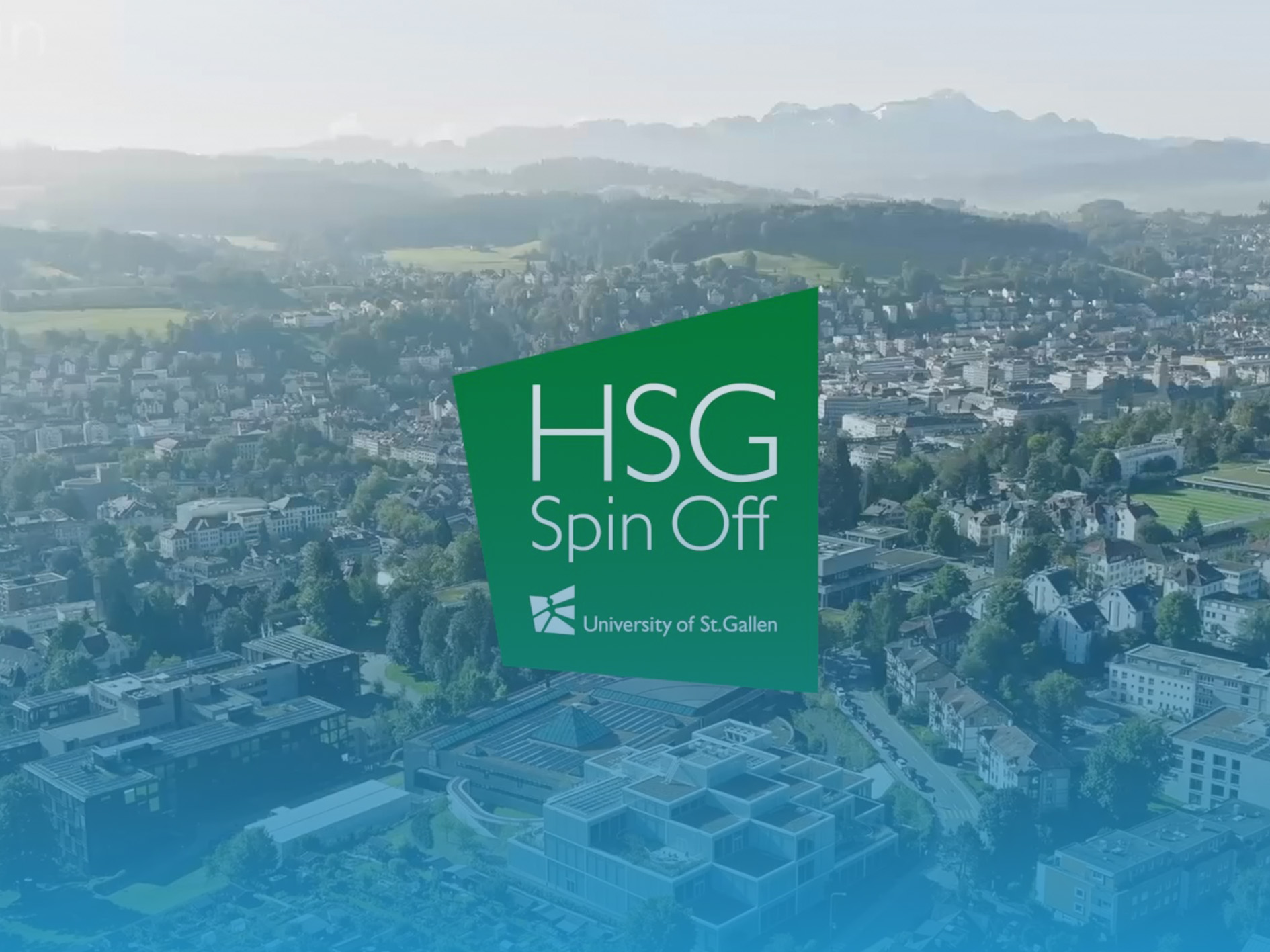Knowledge assurance 4.0 - Why AI and blockchain are becoming mandatory for modern companies

Authored by

May 7, 2025
Today, the global amount of knowledge doubles in less than thirteen months - at the beginning of the 20th century, the same process took around seventy years. For decision-makers, this acceleration means that their companies can only remain competitive if they capture internal know-how faster, protect it more reliably and use it more intelligently than the competition. This is exactly where the conversation between Julianus Kath and Thomas Hepp, founder of OriginStamp, begins in the latest episode of the CorpInSight podcast.
"We have no oil in Switzerland - knowledge is our key resource"
Hepp sums up Switzerland's locational advantage in one sentence: if you don't safeguard knowledge, you jeopardize your economic livelihood. But in times of exponential data growth, how can we prevent documents from becoming obsolete, employee knowledge from being lost and regulators from pulling the plug? The answer lies in the symbiotic use of two technologies that have rarely been considered together to date: Retrieval Augmented Generation (RAG) for the semantic indexing of data and blockchain timestamping for its permanent integrity guarantee.
If you want to delve deeper into the topic, you can listen to the first episode of our podcast "CorpInSight" with Thomas Hepp now! 🎙️ Listen now
From dusty archive to dynamic knowledge infrastructure
The practice of many SMEs looks sobering: Contract folders in the basement, Excel silos on file servers, technical articles as PDFs on local drives. Hepp describes what CFOs, CTOs and compliance officers have so far accepted as a necessary evil as an untapped goldmine:
"Every archive contains all the company's interesting data - you just need clever algorithms to make it analyzable."
RAG extends Large Language Models (LLM) with a semantic search component that loads documents on the fly as context. This allows thousands of contracts, process descriptions or laboratory reports to be processed in milliseconds. For decision-makers, this results in a radical paradigm shift: instead of manual research, a dialog-based approach is created that cites highly relevant passages, reveals sources and can be seamlessly embedded in existing workflows - from strategic environment analysis to automated due diligence audits.
But semantics alone are not enough. Without proof of integrity, every AI response remains legally vulnerable. This is precisely where blockchain provides added value that traditional databases cannot offer: Immutability.
Blockchain timestamping as compliance insurance
Blockchain is slow and energy-intensive - Hepp openly shares this criticism. Nevertheless, the process remains the only globally accessible system that has not been proven to have been successfully manipulated for more than a decade and a half. OriginStamp therefore uses a pragmatic approach:
"We aggregate all the evidence from one day and only write one transaction to the blockchain - this is cost-efficient and sustainable."
By combining several million document hashes in a Merkle tree and writing them to the Bitcoin blockchain as a single hash, archived content can be validated in a court of law at any time without disclosing sensitive information. For industries with strict retention and documentation obligations - medical technology, pharmaceuticals, supply chain, financial services - this approach significantly reduces compliance costs: auditing companies, export authorities and investor bodies are increasingly accepting blockchain evidence as best practice.
Data sovereignty through self-hosted LLMs
However, the security of sensitive knowledge cannot be delegated to public cloud services. Hepp warns against overly careless prompt engineering in the browser:
"Personally, I don't dare to enter company secrets in ChatGPT, even if the subscription promises not to use the data for training."
The solution is self-hosted LLM stacks: models such as Llama-3 or Mistral are operated either on-premises or at a certified Swiss hoster. This means that intellectual property, customer data and research reports remain behind the company's own firewall, while all RAG functions are retained. For decision-makers, this means that the legal requirements of the Swiss Data Protection Act (DPA) and the European GDPR are complied with without sacrificing generative AI.
The silent hurdle: corporate culture and courage
Technology is only half the battle. Hepp repeatedly emphasizes that the biggest barriers are not in the data center, but in the mind:
"The biggest hurdles are the people. Companies need courage and a clear vision."
He recommends setting up interdisciplinary mastermind groups in which experts identify low-hanging fruit, prioritize pilot projects and communicate success stories internally. Repeated maturity level checks - Hepp refers to the "knowledge doubling time" as an indicator - make progress measurable and generate motivation. The result is a learning organization that gradually approaches the limits of what is technically and regulatory feasible.
Strategic implications for C-level decision-makers
1. reduce the time factor
Every week that documents remain undisclosed, the company loses reaction speed. RAG-supported archives provide a basis for decision-making in real time.
2. increase legal and audit security
Blockchain timestamping provides tamper-proof evidence that can withstand audits, IP disputes or ISO audits - a competitive advantage in regulated markets.
3. maintain data sovereignty
Self-hosted LLMs combine AI performance with maximum confidentiality. This keeps strategic knowledge within the company while excellence emerges.
4. promote cultural change
Visionary leadership and participative mastermind formats transform fears of automation into innovative strength.
Conclusion: Securing knowledge as a growth driver
The fusion of retrieval augmented generation and blockchain timestamping creates a robust, scalable and audit-proof knowledge infrastructure. Companies that use these technologies in an integrated rather than isolated way not only safeguard their existing expertise, but also open up new potential for value creation - from automated compliance reporting to AI-supported M&A due diligence. In Hepp's words:
"A bad process remains a bad process even with AI - but a good process scales exponentially."
Now is the time for decision-makers to act boldly: Prioritize resources, launch proof-of-concepts, empower internal champions. If you wait, you risk your company's knowledge being lost in the flood of data - and with it the basis for future growth.
📢 Want to find out more? Then listen to the full podcast episode with Thomas Hepp!
The content of this article may have been improved with the help of artificial intelligence. Therefore, we cannot guarantee that all information is complete and error-free.




